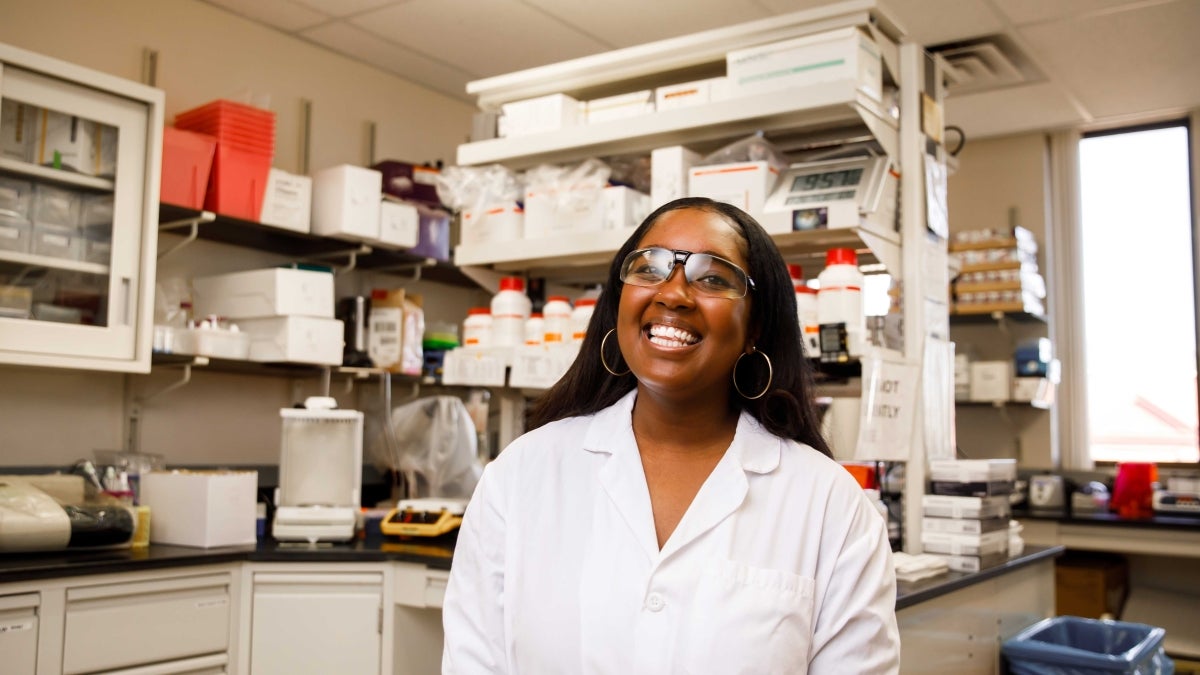For Meli’sa Crawford, talking about poop isn’t gross or impolite — it’s an important part of a day’s work. Crawford is an Arizona State University PhD candidate who studies poop to learn how a high-fat diet can alter your microbiome, or gut bacteria. She also explores how gut bacteria affect your health.
High-fat diets are common in low-income food deserts, areas where grocery stores are scarce and fast food is cheap and plentiful. As she learns more about the relationship between diet and gastrointestinal health, Crawford hopes one day to improve food quality in underprivileged areas.
Crawford's talk is part of the ASU KEDtalks series. Short for Knowledge Enterprise Development talks, KEDtalks aim to spark ideas, indulge curiosity and inspire action by highlighting ASU scientists, humanists, social scientists and artists who are driven to find solutions to the universe’s grandest challenges.
Tune in to research.asu.edu/kedtalks to discover how researchers are attacking locust plagues, why baby steps are not the best way to achieve change and more.
Top photo by Andy DeLisle
More Health and medicine

The science of sibling dynamics: Why we fight, how we relate and why it matters
We have Mother’s Day, Father’s Day and even Grandparents’ Day. But siblings? Usually they get a hand-me-down sweatshirt and, with any luck, a lifetime of inside jokes.But actually, there is a…

New study seeks to combat national kidney shortage, improve availability for organ transplants
Chronic kidney disease affects one in seven adults in the United States. For two in 1,000 Americans, this disease will advance to kidney failure.End-stage renal failure has two primary…

New initiative aims to make nursing degrees more accessible
Isabella Koklys is graduating in December, so she won’t be one of the students using the Edson College of Nursing and Health Innovation's mobile simulation unit that was launched Wednesday at Arizona…


